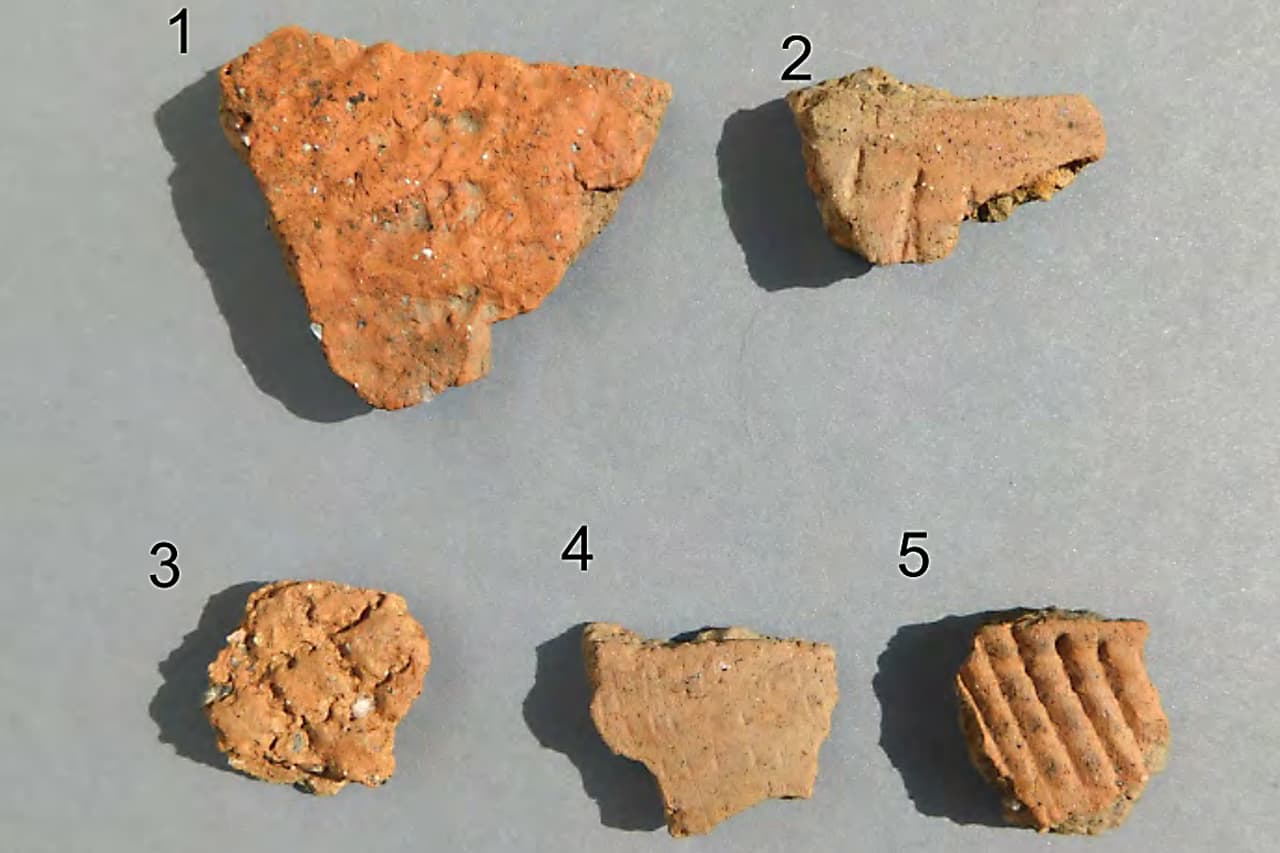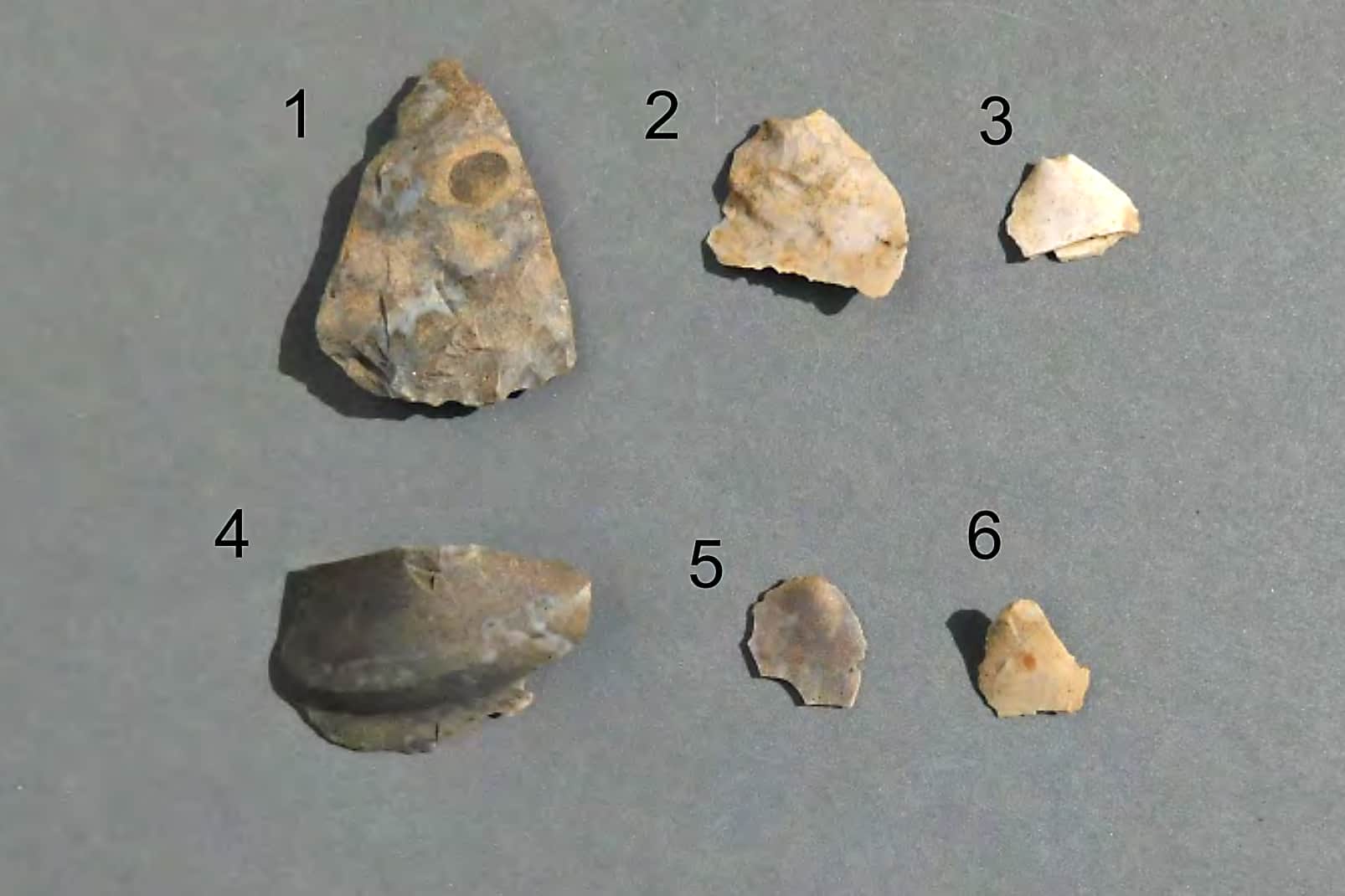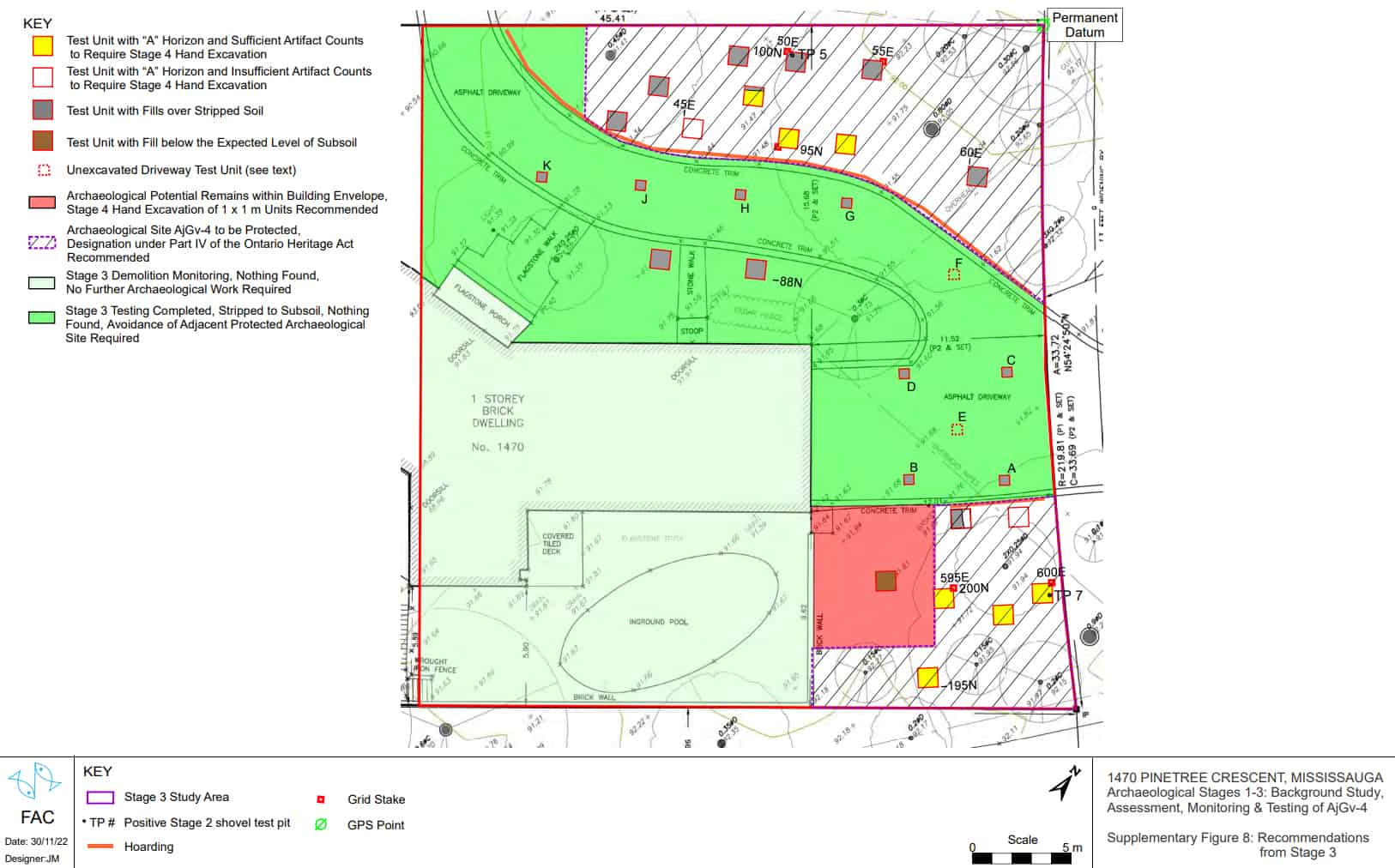Evidence of an Indigenous settlement found on a Mississauga property
Published May 5, 2023 at 3:21 pm

An archaeological dig on a Mississauga residential property revealed evidence of an Indigenous settlement.
According to a report to the city’s Heritage Advisory Committee, artifacts were found at the severed corner lot at 1470 Pinetree Crescent, a now-vacant property just south of the QEW near Stavebank Road. That property is now up for a possible heritage designation.
In this case, heritage designation means there can be no changes or modifications in any designated areas without prior agreement with the City of Mississauga, The Mississaugas of the Credit First Nation and the Ontario Ministry of Citizenship and Multiculturalism.
The landowner still retains full legal title to the whole property (including the designated areas) and can continue to landscape and maintain the property in the designated areas.
A severance of the property into two separate lots triggered an assessment, according to the report from Fisher Archaeological Consulting submitted to the City of Mississauga. The report noted the high potential for Indigenous archaeology as the property is close to the Credit River.
An Indigenous ceramic sherd and lithics (chipped stone artifacts) were found at first.
More digging revealed an “assemblage of Indigenous artifacts” and evidence of an “Indigenous Woodland habitation.”
The archaeologists found the property has further cultural heritage value in the designated areas outside of the permitted building envelope (as shown in the hatched areas in the diagram below).
The report is coming to the City of Mississauga’s Heritage Advisory Committee on Tuesday (May 9) for consideration for a heritage designation.
“The site dates to multiple periods of Indigenous occupation and is representative of the continual habitation of these lands by Indigenous Peoples since time immemorial,” the Heritage Advisory Committee report reads.
“Due to the connection with the Indigenous occupation of this part of Mississauga and the City’s commitment to Reconciliation through actively opposing the erasure of Indigenous heritage, the site is found to have associative value as well.”

Through discussions with the current property owner, the Mississaugas of the Credit First Nation and the Archaeology Program Unit at the Ministry of Citizenship and Immigration, the report states that it was decided to protect parts of the property under a Part IV designation.
This designation prohibits the “demolition or removal of any building or structure and requires ministerial approval for alterations of the property,” according to the Province of Ontario.
According to a representative of the property owners, there are two lots at the 1470 Pinetree Crescent address, a severed lot at the corner and a retained lot in the ravine. The owners applied for a severance of the property in 2020, and the archaeological assessment was a condition of the request, as is standard in Mississauga.
The retained ravine lot (not shown in the diagram below) has no archaeological concerns or attributes and the severed corner lot (even with the archaeological designations) still permits the construction of a 4,270-square-foot home (and possibly more, should the city approve a request). A representative of the property owners says that only two small areas outside the permitted building envelope have been approved for the designation, neither of which is suitable to be built on, as they are within the city’s setback areas from the bordering streets.
Any areas within the building envelope were fully excavated and are free of any cultural heritage value or interest and the property owners confirmed there were no human remains found on the property, as noted in the report from Fisher Archaeological Consulting.
Since the archaeological work started, the old home and pool on the property were demolished. Archaeologists didn’t find artifacts under the home or pool or the existing driveway or the grassy areas between the existing driveway and home or in the retained ravine lot and deemed that these parts of the property didn’t require further study.
The archaeological assessment has been completed, and no further studies are required.

The archeological report indicates there is possibly more to find only in the designated areas (in the hatched areas in the diagram above) on the property and if construction moves ahead on a new home, specific locations of the shoring to protect the designated areas should be approved and monitored by a licenced archaeologist, the Mississaugas of the Credit First Nation, and/or the City of Mississauga.
This isn’t the first time property development has turned up artifacts. In 2020, ceramic, glass and metal artifacts dating from 1840 to 1870 were found on a property in development for a hotel in Mississauga and other properties near 1470 Pinetree Crescent in Mineola West.
And evidence of an Indigenous village was found at the now-decommissioned Grand Highland Golf Course.
For more on the findings from 1470 Pinetree Crescent, see the Heritage Committee report.
Editor’s note: This article has been updated from its previous version to include additional information about which parts of the severed corner lot are impacted by the designation.
INsauga's Editorial Standards and Policies